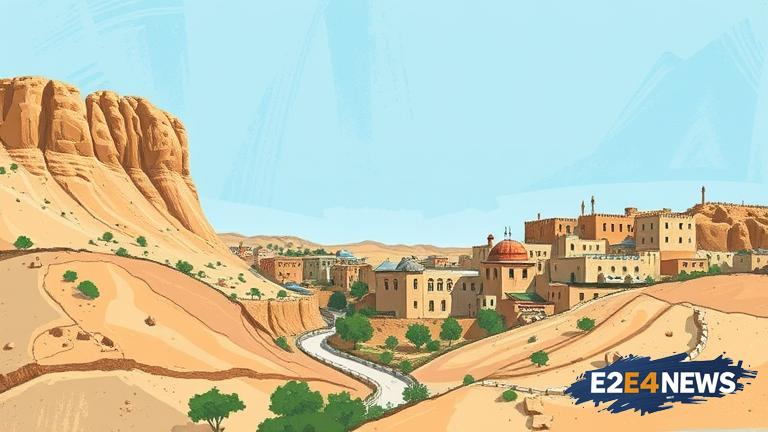The concept of a Greater Israel has been a longstanding point of contention in the Middle East, with the Israeli government seeking to expand its territory and the Palestinian people fighting for their right to self-determination. The West Bank, a region located west of the Jordan River, has been a major focal point in this dispute. The area is currently divided into three main sections: Area A, Area B, and Area C, with the Palestinian Authority having varying levels of control over each. Area A is under full Palestinian control, while Area B is under joint Israeli-Palestinian control, and Area C is under full Israeli control. This fragmentation has resulted in a tiny strip of land being designated as the potential Palestinian capital, sparking concerns over the feasibility of a two-state solution. The Israeli government has been accused of using settlement expansion and land confiscation to further divide the West Bank, making it increasingly difficult for the Palestinian people to establish a contiguous and viable state. The international community has repeatedly called for a halt to settlement expansion, citing its illegality under international law. Despite these efforts, the Israeli government has continued to approve new settlement construction, leading to widespread condemnation from the global community. The Palestinian people have long been seeking recognition as a sovereign state, with the right to self-determination and statehood. However, the Israeli government has refused to recognize Palestine as a state, citing security concerns and the need for a negotiated settlement. The United States has historically been a key player in the Israeli-Palestinian conflict, with successive administrations attempting to broker a peace deal. However, the current US administration has been criticized for its pro-Israel bias, with many arguing that its policies have undermined the prospects for a two-state solution. The European Union has also been involved in efforts to resolve the conflict, with the bloc repeatedly calling for a negotiated settlement based on the 1967 borders. The Arab League has also played a key role, with the organization proposing a peace initiative that would see Israel withdraw from occupied territories in exchange for recognition and normalization with Arab states. Despite these efforts, the conflict remains unresolved, with the Palestinian people continuing to suffer under occupation. The humanitarian situation in the West Bank is dire, with many Palestinians lacking access to basic necessities like food, water, and healthcare. The economic situation is also precarious, with the Palestinian economy heavily reliant on international aid. The political situation is equally uncertain, with the Palestinian Authority facing internal divisions and the Israeli government refusing to engage in meaningful negotiations. The international community must continue to pressure Israel to halt settlement expansion and recognize Palestine as a sovereign state. The Palestinian people have the right to self-determination and statehood, and it is the responsibility of the global community to ensure that this right is respected. A two-state solution is the only viable option for resolving the conflict, and it is imperative that the international community works towards achieving this goal. The fate of the Middle East hangs in the balance, and it is crucial that the global community takes action to prevent further instability and bloodshed. The Palestinian capital, wherever it may be located, must be a symbol of hope and freedom for the Palestinian people, rather than a source of division and conflict. The world must come together to support the Palestinian people in their quest for statehood and self-determination, and to work towards a lasting and just peace in the Middle East.
